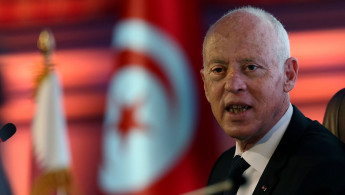We conclude this live blog for tonight with Reuters' useful timeline below. Stay tuned for our follow up of the dramatic events in Tunisia in the morning
Tunisian President Kais Saied sacked the government and froze parliament on Sunday in one of Tunisia's biggest political crises since the 2011 revolution that introduced democracy.
Here is a timeline showing Tunisia's bumpy decade of democracy and the path to Saied's decision.
* December 2010 - Vegetable seller Mohamed Bouazizi sets himself on fire after police confiscate his cart. His death and funeral spark protests over unemployment, corruption and repression.
* January 2011 - Autocrat Zine El-Abidine Ben Ali flees to Saudi Arabia, as Tunisia’s revolution triggers uprisings across the Arab world.
* October 2011 - Moderate Islamist party Ennahda, banned under Ben Ali, wins most seats and forms a coalition with secular parties to plan a new constitution.
* March 2012 - Growing polarisation emerges between Islamists and secularists, particularly over women’s rights, as Ennahda pledges to keep Islamic law out of the new constitution.
* February 2013 - Secular opposition leader Chokri Belaid is assassinated, prompting street protests and the resignation of the prime minister. Jihadists mount attacks on police.
* December 2013 - Ennahdha cedes power after mass protests and a national dialogue, to be replaced by a technocratic government.
* January 2014 - Parliament approves a new constitution guaranteeing personal freedoms and rights for minorities, and splitting power between the president and prime minister.
* December 2014 - Beji Caid Essebsi wins Tunisia’s first free presidential election. Ennahda joins the ruling coalition.
* March 2015 - Islamic State attacks on the Bardo Museum in Tunis kill 22 people. In June a gunman kills 38 at a beach resort in Sousse.
The attacks devastate the vital tourism sector and are followed by a suicide bombing in November that kills 12 soldiers.
* March 2016 - The army turns the tide against the jihadist threat by defeating dozens of Islamic State fighters who rampage into a southern town from across the Libyan border.
* December 2017 - The economy approaches crisis point as the trade deficit soars and the currency slides.
* October 2019 - Voters show dissatisfaction with the major parties, first electing a deeply fractured parliament and then political outsider Kais Saied as president.
* January 2020 - After months of failed attempts to form a government, Elyes Fakhfakh becomes prime minister but is forced out within months over a corruption scandal.
* August 2020 - Saied designates Hichem Mechichi as prime minister. He quickly falls out with the president and his fragile government lurches from crisis to crisis as it struggles to deal with the pandemic and the need for urgent reforms.
* January 2021 - A decade on from the revolution, new protests engulf Tunisian cities in response to accusations of police violence and after the pandemic devastates an already weak economy.
* July 2021 - Saied dismisses the government, freezes parliament and says he will rule alongside the new prime minister citing an emergency section of the constitution that is dismissed by Ennahda and others in parliament as a coup.





 Follow the Middle East's top stories in English at The New Arab on Google News
Follow the Middle East's top stories in English at The New Arab on Google News
![Israeli forces ordered bombed Gaza's Jabalia, ordering residents to leave [Getty]](/sites/default/files/styles/image_330x185/public/2176418030.jpeg?h=a5f2f23a&itok=_YGZaP1z)

